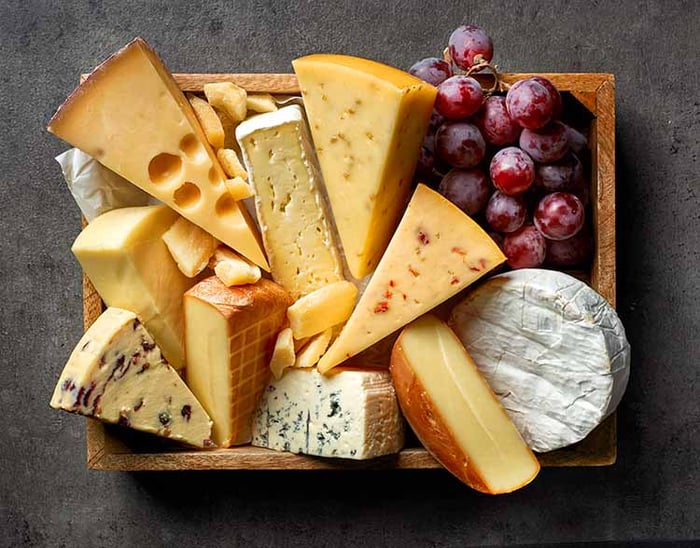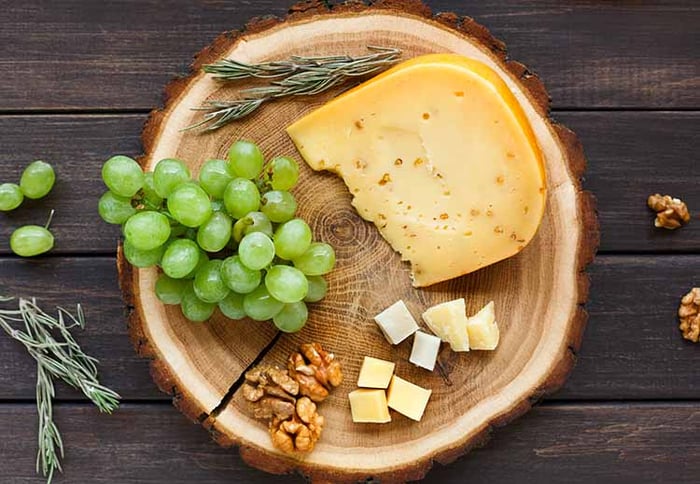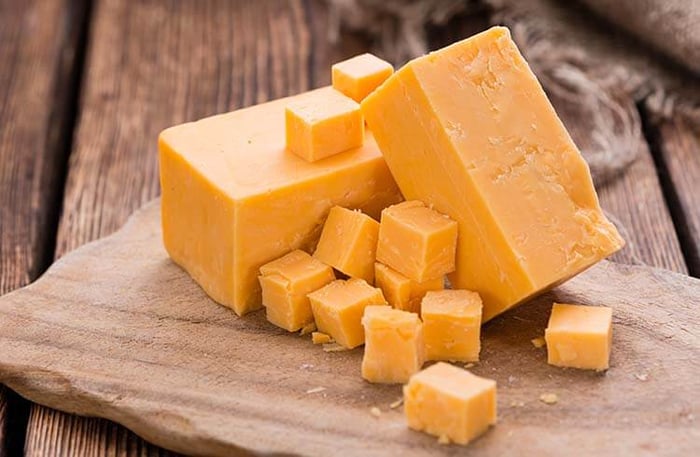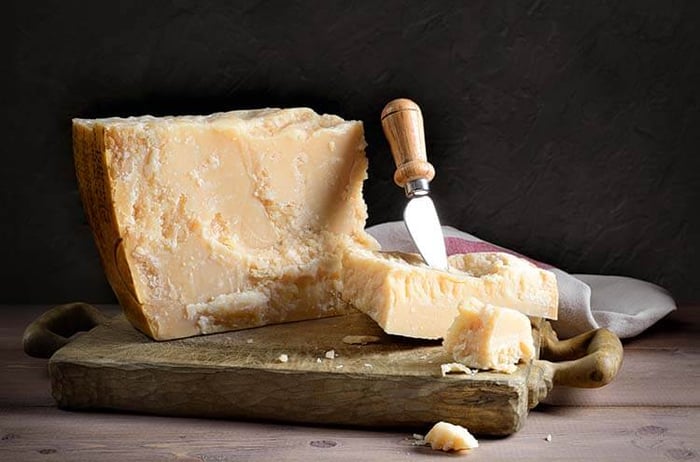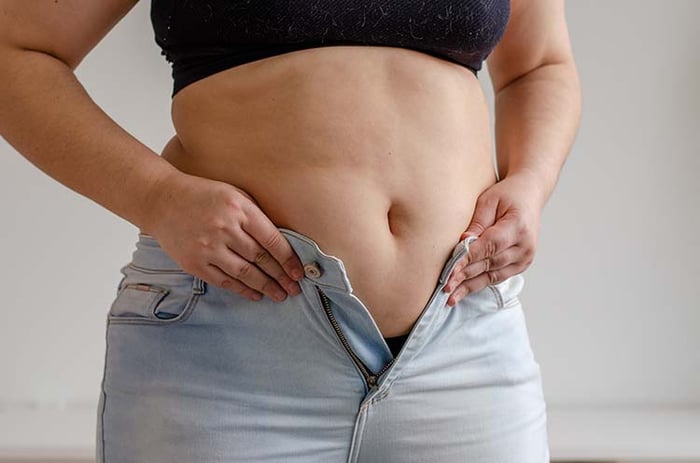You Love Them For A Reason--And Brand-New Science Reveals How These Everyday Cheeses Can Help Melt Pounds of Fat From Your Belly, Thighs & Arms...
‘How many days until Cheat Day?” Is a question I wake up asking myself almost every day…
And up until recently, when it came around every Saturday morning… there was one thing I craved more than anything else:
Cheese.
In my eggs… On a bagel…
Over a burger (medium-rare, please!)...
Pasta, pizza, with crackers, you name it...
I wanted it all.
And for a very long time, I spent 6 out of 7 days of the week thinking I couldn’t eat cheese because it’s “unhealthy” and “fattening”... and would completely unravel my diet and efforts.
Well, what if I told you that’s a bunch of B.S.?
And in fact you can enjoy cheese almost anytime you want… not just on “Cheat Day,” but every day?
Brand-new research has discovered that certain cheeses are not only GOOD for you… but can in fact help your body burn more fat naturally.
And I’m not talking about the “reduced fat,” “part-skim,” “diet-friendly” crap either.
These cheeses are delicious, can be found in almost any supermarket, and are more familiar than you may think… and below I’m going to show you exactly how they can help you peel off the pounds. :-)
But there is one thing I need to address first...
The Problem With Low-Fat & “Diet-Friendly” Cheeses…
You probably already knew this… but perhaps you’ve been denying it (I know I did for years):
Cheeses labeled as “low-fat” and “diet-friendly”... are generally NOT good for you.
They’re almost always processed more than other full-fat cheeses, and will without a doubt always leave you wanting more.
Sure, they’re touted as “creamy,” “rich,” and “delicious”...
Come in small, cute, portion-controlled packages…
And can be easily found in most major grocery stores…
But when’s the last time you ate a wedge of that stuff and thought:
“Mmmmm, that was SO satisfying!”?
Yeah, same.
Plus with calorie information plastered all over the packaging, it’s practically impossible to truly enjoy these types of cheeses (without doing math as you devour it).
And have you ever looked at what’s really in these cheeses?
Because it’s NOT just cheese--some of these ingredients read like a foreign language, and contain ingredients like “anhydrous milk fat”...
“Sodium polyphosphate”...
“Natamycin”...
Plus a lot of them contain unnecessary additives like Potato Starch and Annatto, for texture and color. Yikes.
So not only do these types of “low-fat” and “diet-friendly” cheese end up packing on the pounds despite their lack in flavor and quality… but they’re not so great for your health either.
But What Most People Don’t Realize, Is That Certain Cheeses Actually Help You LOSE Weight…
Just because “low-fat” and “diet-friendly” cheeses aren’t great for you… does that mean all other cheeses are bad for you?
Absolutely NOT!
There’s a lot of misinformation out there about what makes a cheese “healthy” or “diet-friendly”...
And the reality is, thanks to society and the media, we have been led to believe that cheese is, as a rule, “bad” for you.
Now, I’m not going to sit here and tell you that eating a wheel of Parmesan a night is going to help you lose weight (spoiler alert: it’s not)...
… BUT new research is just now discovering that in small doses, certain full-fat, delicious cheeses can actually help you lose more fat.
Here are the 3 best fat-burning cheeses we know of so far:
1) Gouda
A recent study published in the medical journal FEMS Immunology & Medical Microbiology revealed that certain kinds of Gouda can give your immune system a serious boost.
The researchers asked a group of volunteers between the ages of 72 and 103 to eat a slice of cheese with their breakfast for four weeks--part of the group ate probiotic Gouda, and part ate a placebo cheese (not probiotic).
After some time, the researchers gave blood tests to the participants to see how the cheese was affecting their immune systems.
(All the participants lived in the same home to control for other outside factors, and the participants didn’t change anything about their lifestyle while this was happening.)
According to the lead researcher of the study, Dr. Fandi Ibrahim, the people who ate probiotic Gouda showed a “clear enhancement of natural and acquired immunity.”
Even more research has been done to show a particular probiotic species in Gouda can potentially boost your metabolism, and help you burn more fat… but more on that in a bit.
2) Aged & Irish Cheddar
Is there such a thing as a “heart-healthy” cheese?
Yes, according to this new research!
Scientists made a probiotic cheddar to study its effects on mice’s cholesterol levels… and what they found was pretty shocking.
The probiotic cheddar was found to lower total serum cholesterol, low-density lipoprotein cholesterol and triglyceride levels significantly.
Even better, many Irish Cheddars contain the same exact cholesterol-lowering probiotic used in the study--L. Plantarum.
Another probiotic found in many aged cheddars, L. fermentum, has been linked to increased metabolism, fat burn and weight loss as well.
The best part is, cheddar is one of the most versatile and easiest-to-find cheeses--and most grocery stores carry a wide selection with a number of aged varieties to choose from.
3) Parmesan
Believe it or not, the cheese you already know and love is not only good for you, but is good for your waistline too. :-)
Parmesan contains a number of probiotic strains linked to a variety of health benefits.
For example, L. Rhamnosus, which has been linked to an increase in immune function, has also been shown to fight allergy & UTI symptoms… and has even been linked to increased fat loss for women (not for men though!).
BUT… you do need to be careful about the kind of parmesan you buy.
You’re looking for proper Parmigiano-Reggiano. Not the stuff that’s pre-grated, and not the stuff that’s shredded in a container.
The real-deal stuff, often sold in chunk form, might be a little bit pricier, but not only does it taste a lot better… it’s also a lot better for you.
And that’s because it’s made using all-natural ingredients, and a process that’s been followed for thousands of years… which ultimately creates a product that’s rich in these fat-burning nutrients, and is naturally free of nasty chemicals and preservatives found in many other cheeses.
That’s one thing these 3 cheeses all have in common… there’s nothing fake about them (and they’re all delicious of course). :-)
But there’s one big question about these cheeses I haven’t answered yet...
What Gives These 3 Cheeses Their Fat-Burning Capabilities?
Yes, these cheeses are all delicious…
They’re not as processed as a lot of other cheeses…
Though there is one more thing these 3 cheeses have in common…
And it’s the thing that gives them their fat-burning power in the first place:
Each of these cheeses contains a kind of bacteria (yes, bacteria!) that is scientifically proven to potentially help you burn more fat.
Because bacteria are in everything…
They help turn milk into cheese, which means there are bacteria in every single cheese…
... and they are in our bodies as well, which is a GOOD thing!
(The average person carries 4 pounds of bacteria inside them... and many studies show bacteria play a HUGE role in your health, and weight regulation)
Scientists are just now beginning to understand how bacteria contribute to our health…
... and more specifically how bacteria can help you lose weight…
And they discovered that there are 4 (so far) of these special strains of “fat-burning bacteria.”
Each of the cheeses above contains at least one strain of this “fat-burning bacteria”...
(One study found that people who took THIS bacteria found in Parmesan for 12 weeks burned up to 8.5% more belly fat!)
Though there are MANY more delicious foods, with MUCH higher concentrations of these “fat-burning bacteria”...

